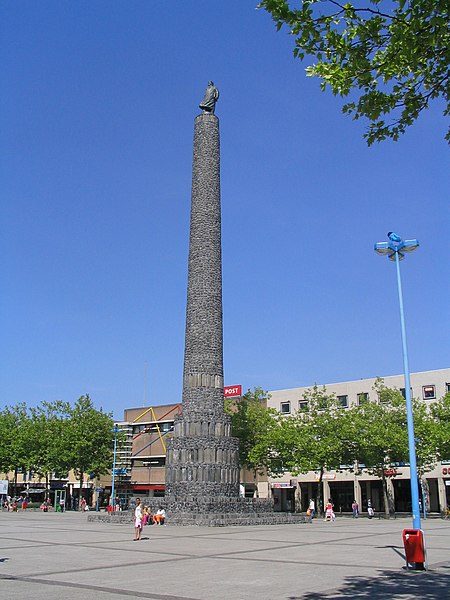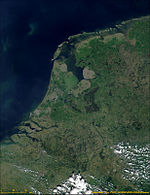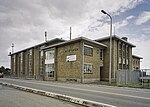Lelystad
1967 establishments in the NetherlandsCities in the NetherlandsLelystadMunicipalities of FlevolandPages including recorded pronunciations ... and 5 more
Pages with Dutch IPAPages with non-numeric formatnum argumentsPopulated places established in 1967Populated places in FlevolandProvincial capitals of the Netherlands

Lelystad (Dutch pronunciation: [ˈleːlistɑt] ) is a municipality and a city in the centre of the Netherlands, and it is the capital of the province of Flevoland. The city, built on reclaimed land, was founded in 1967 and was named after Cornelis Lely, who engineered the Afsluitdijk, making the reclamation possible. Lelystad is approximately 3 metres (9.8 feet) below sea level.
Excerpt from the Wikipedia article Lelystad (License: CC BY-SA 3.0, Authors, Images).Lelystad
Griend 16, Lelystad
Geographical coordinates (GPS) Address Nearby Places Show on map
Geographical coordinates (GPS)
| Latitude | Longitude |
|---|---|
| N 52.5 ° | E 5.4833333333333 ° |
Address
Griend 16 11
8225 RK Lelystad
Flevoland, Netherlands
Open on Google Maps











